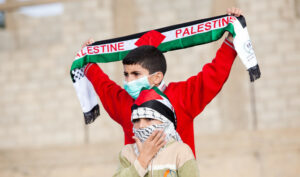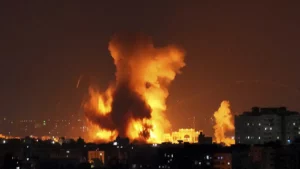He was born in Plymouth, Devon, England, in 1952. He emigrated to Australia at age 8. He is a poet, writer for children and cultural manager. He has published six books of poetry, including: Faultlines, 1991; The Great Wall of Instinct, 1993; Be Straight With Me, 2000; Island, 2000; The Human Project: new and selected, 2009. He also published Microtexts, 2005 (collection of aphorisms on poetry and poetics). On several occasions he directed the Australia Poetry Festival.
“His work, influenced by the landscapes of Sydney, explores the ways in which we could imagine ourselves beyond our heredity and evolution of our social and imaginative spaces”. In the words of Judith Beveridge, “his poetry at once tough and musical… and a mind that can think to the point of revelation within its chosen figures or images.” And according to Susan Wicks.” (the poems) put forward what amounts to a poetic worldview with complete commitment at every level – moral, intellectual, emotional, linguistic – and the result is undeniable authority.”
(This is a poem about a beach near Sydney)
The Beach
Whitewater surges towards you,
a hedgerow of small, liquid tongues.
You dive through to hissing
that sighs to a crochet of salt.
Diving, again and again,
you will come
to an endless slight rocking.
Here, light and water are one:
brief-slope and half-bowl striations;
light-tumblings, ruptures and pearls;
non-human hectares of dream-jostling,
skin-gentling slaps.
When you turn round
all you see’s the huge light
flooding spray-drifts and stately, broad levels.
Unheard, waves crawl
across farther and farther gold sea-plains,
small, upper bodies
where great rays fan out
through the caves and suspensions of spray.
Later, you climb the warm stairs;
walk in and out through the shadows
that lean across bright, spongy grass, and pink paths.
Summer has soaked into crevices.
It sets at the back of your eyeballs,
bathes nerves in your scalp…
On, tired and slow,
past dark, wide-open entrance halls,
surfies, old couples with kids.
Side-streets that peel into jigsaw:
sky glimpses, leaf shadows, brick.
Bone-happy. Slow. Without utterance.
This is a gift from the sun and the planet.
This is not just something humans or words have made up.
*
(Indonesian militias massacred East Timorese seeking their independence in 1999, by hacking them up with machetes, and throwing the body-parts into a well. I dreamt I was in the well with them, and that even though they were dead, they were still trying to rise to the surface.)
Dream: The Well—Timor, October 1999
There is hope, but not for us – Kafka
The water seeps far underneath them.
It is clear. It is cleansing the earth. But here,
in the litter of torment, moonlight thins out
over burnt rock, and meat-hooks,
bare torsos stacked in a well. I picture them
turning and lost, in a grief beyond death –
as if they could hold their companions;
rise towards whatever shines
on their trenched, marble skin. As if
they could climb past the absolute lip
of their dying; trace hands like tears,
down the faces of those whom they loved.
But they can’t. They have no hands or eyes.
No-one will lift them out now
from the well of blood’s genes – walk with them,
say, by the side of the brook in the Pastoral –
down guarded slopes of invention;
answer their kiss in a mottling of shadows
where freedom’s a mood of the strong.
They have such a short distance to travel.
But all they can make out’s
the trickling of hope-not-for-them.
(We haven’t begun to consider the injustices associated with beauty. There was a very shy, overweight girl trying to find her seat at the Sydney Olympics. . .)
*
At the Olympics: Handball
Overweight, and bony-jawed, she cowers,
one step at a time, up the tiers of the Dome. Someone
has got her to come here – her mother perhaps:
They won’t come again in your time! The teams flex,
and pepper the goalies in warm-up: high-fives,
and clatter, and edge. But what draws your gaze
is the way that her whole body pleads,
in its twisted withdrawal, for the seat she can’t find.
She clutches the handrail for comfort. She searches
without looking up. Such hopeful gestures:
the Def Leppard t-shirt, the limp knot of lace in her hair.
She is maybe nineteen, maybe more. But you know
when the first chance arises – some drunkard,
some brother’s mad mate – she will say yes,
and pray to hold on: her bed like a plain in the dark
where there are no kind choices.
What horror
have we laid down here: when a girl’s need
first leans like a bud towards sun – and the one thing
that happens is judgement – the great stone
that lies on our kind like the distance to God?
So we cannot imagine a lover:
someone whose hand turns her head in delight
and in awe at her presence here too:
smoothing aside all she’s learnt of the old prohibitions –
wonder, attentiveness, bubbling, upwelling –
like the pooling of permission, of forgiveness?
*
(This is a poem dedicated to all writers, working away on that tacit, multi-faceted project of trying to imagine a better world.)
The Writers
They huddle in dusk at the back of the temple,
and pray to be clean, to be favoured-of-God.
They submit to the chill of scriptoria.
They enter the lonely retreats of the wallpapered rooms.
In thrall to the terrible whisper of what-is-the-case,
they will set down its phrases:
Here is a man with a glint in his eye and a victim.
This is the impact that shrapnel can have on the bone.
Look, they will say,
at this lifetime of days
without courage, or care for the other.
And: Listen, listen, they say,
this is a man as he falls.
This is the girl for whom no lovers came.
This is the unhappy fate of the man who spoke up.
Galaxies wheel past, regardless.
Earth shines and shines in its night.
The writers go into themselves
with their books and their quarrels, their small, funny ways.
They know that you cannot just name wrongs
and leave it at that.
They search for the spaces
that people might enter together.
They think that the music of words
might lead sidelong to light.
Year after year, they examine the feasts of the omnivores.
Thorough, and quick with suggestions;
hopeful, but not trusting hope;
they know that there must be a way to imagine a gentleness.
*
(I saw a news report about a teenage boy, from Ethiopia, or Sudan, who was running towards Europe, and I gave him a backstory).
Ari
Ari is running.
At night, so the locals won’t beat him.
To the side, to stay out of the ruts.
He is running because all his people are
are landless and scattered –
or scattered and crazy – or crazy and sick.
His lungs keep good pace,
but his feet are cut badly, and bleeding.
Never mind.
He will walk in the towns.
He is running because
they’ll allow him to work as a doctor.
He is running because
he is wearing the cap of the Bears.
He has seen in the films
there are lands full of nothing but cities.
And he knows that the Council of Spaces
takes care of you there.
He will run to the dust-plain of trucks
and seek news of his journey.
They will laugh at his questions, and lie,
but his gods will read well.
He will borrow a ride to the valley of fires.
He will trawl through the smoke
with the cripples the earth does not need,
and hunt ibis and crow.
But he’ll be there when men from the ferries
seek look-outs and post-boys.
He will do as they say, to a ‘t’.
For their needs,
they will teach him the passage.
He will practise his speaking
and make himself small, like a ghost.
He will crouch in a darkness
of engines, and saltwater slapping…
And he will climb ashore
through those shipyards –
because there are people in cities
in whom one can trust.
*
(A poem about how the rationality that is covering the earth is affecting our ability to dream and to be in touch with the gods. A white officer explains to the Sioux after the Indian Wars. . .)
The Spider’s Web
He dreamed that the four-leggeds were going
back into the earth, and that a strange race had
woven a spider’s web all around the Lakotas…
Black Elk, quoting the medicine man, Drinks Water
We will cover the world with our signs
and our rifles will rest.
Everyone will speak in moderation.
There will be no more room for your old, so-called gods.
No-one will dance them
and no-one feel rain on their skin.
All your requests will be read in appropriate order;
all explanations respected – though nothing believed.
There will be no more suffering –
other than painlessness.
Days will pass by like a cloud that refuses to form.
When justice rules the whole world
with its equable mist
we will bow down to gossamer.
By then, we’ll all be so ethical, no-one will kiss.
In that time,
no-one will know how to dream beyond words.
*
(An elegy for all those people, who, for so many different reasons, have died in the long historical struggle to create just and inclusive spaces for everyone.)
The Kingfisher’s Wings
Let us remember them all.
It is all the same war.
Lay our wings over them –
kingfisher coverts
on those
who have died
in the braiding of spaces –
the wars between instincts and words;
between gestures and genes.
The peoples who vanished like clouds, in the untallied years –
whose tribes were defeated, whose boundaries are shadow and wind.
Those who sat down in the lean years –
because too many bore in the good ones.
Those who were herded by iron into corners of drought.
Let us feather their bones with our stories,
ruffle the air they once breathed with the blue vanes of grief. . .
Who were food for the gods.
Or who died in the turf wars.
Because they were bloodline. Or offal.
Because they were part of a text that required them to lose.
It is all the same battle.
The same bitter hormones:
the same tumbleweed- and kaleidoscope-flurry of grounds.
Those who became inconvenient –
who were dealt on the wrong side of claims.
Who were swept from their fields by Napolean’s ants;
by Jenghis’ ants, or by Akbar’s.
The boys who were not the right type.
And the women who were.
It is all the one war:
to invent ourselves human;
to word ourselves more than we are.
Let us fold them in the azure of our wings.
Those who were defeated by their readings.
Those who played their words against themselves.
Who died for their freedoms.
Who died because terrors like freedom
were too much to bear.
Let us brush them
with the sheen of our attention –
this riffle of lustre, our sorrow –
this brief spill of water and light
which is where we begin:
weigh where we stand with our grief;
with its gravities, sing.




